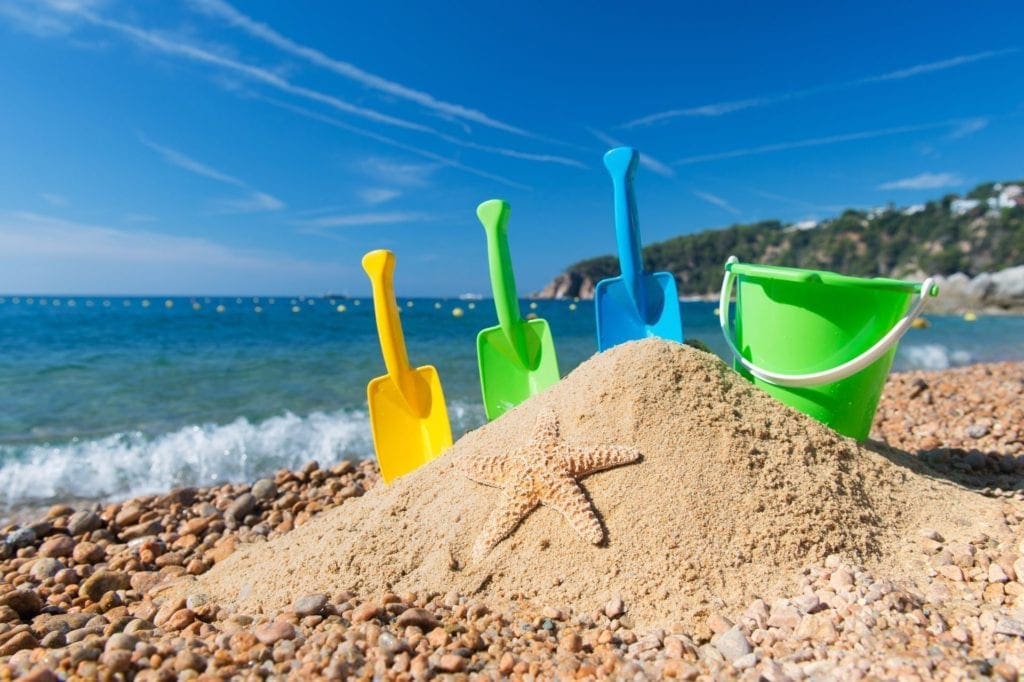If you’ve been following this blog closely, you’ll have seen my posts on keeping your class blog and your school website up to date and relevant for your visitors.
Creating a plan for content production, involving students in this and scheduling posts in advance are just some of the ways you can ensure your site stays relevant and up to date throughout the year. But what do you do during the long summer vacation?
Depending on which country or state you’re in, your school could be closed for anything from six weeks to three months, during which time staff and students won’t be around to create content and manage the site. So what should you be adding to your site over the summer vacation and how can you set it up to stay fresh while you’re taking a break? And importantly, how do you ensure it’s monitored for any security breaches or crashes while you’re away?
I’m going to take this topic in two parts. First I’ll look at maintaining the infrastructure of your site while you’re away – making sure the software stays up to date, that it’s protected against attack and that if there are any problems, they can be fixed. And then I’ll look at content, and identify the kinds of content that are relevant during the long vacation and when you should be scheduling them.
So, let’s start with your site’s infrastructure.
Keeping Your Site’s Infrastructure Updated and Secure
With staff away from their desks and fewer people accessing the site on a regular basis, it’s more of a challenge to keep the site secure and up to date.
Short of nominating someone to do this, the best solution is to automate everything you can. This includes backups, security scans, downtime and software updates.
Keeping Your Site Backed Up
Your routine for keeping your site backed up should be the same over the summer as it as for the rest of the year – it should run automatically at regular intervals. If you haven’t already set up automatic backups, now’s the time to do it.
If you’re running your site on CampusPress, then you don’t need to worry – your site is stored on our servers which we keep regularly backed up. But if you have your own standalone WordPress site or are using another system, then you’ll need to configure backups yourself.
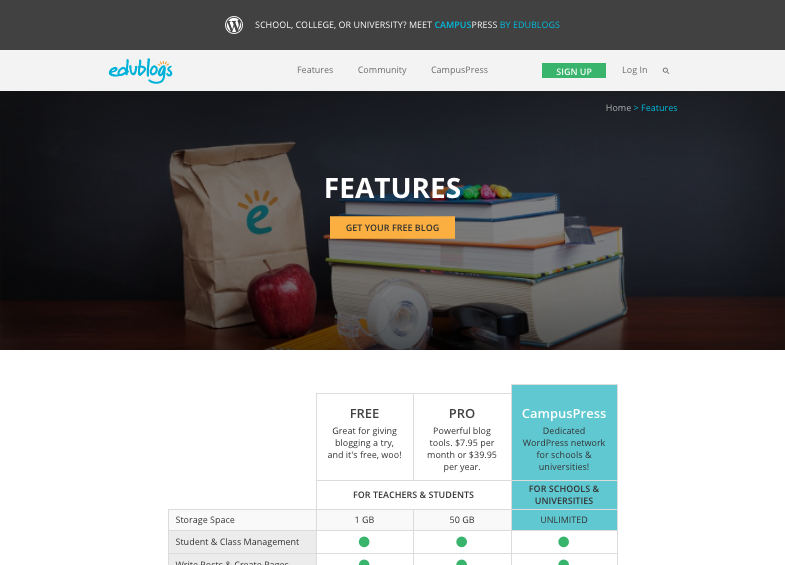
For a self-hosted WordPress site, use our Snapshot Pro plugin, which not only automates backups for you at whatever intervals you like, but also makes it incredibly easy to restore your data with the click of a button – something not all backup plugins offers.
Whatever you do, make sure you’ve got it set up already, so you don’t need to worry about backups during the summer or during term time.
Updating Software
As you won’t be around to keep your site’s software updated during the vacation, you need to make sure that this, too, is automated.
Again if you’re running your site or blog on CampusPress, there’s good news – we do this for you. All of your plugins and themes, as well as WordPress itself, will be kept up to date.
If you want to see what this involves, try visiting our change log, which details all of the updates and changes being made to CampusPress on a daily basis.
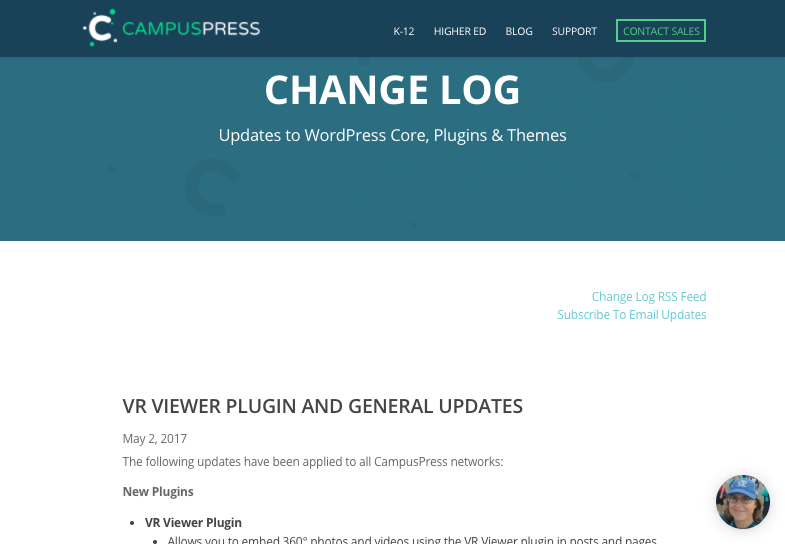
But if your site is on your own self-shorted WordPress installation, you’ll need to set something up. You can install a plugin to automatically run updates when WordPress is updated or a theme or plugin gets an update.
- If you’re running a WordPress site with WPMU DEV plugins (such as the ones I’m recommending in this post), the WPMU DEV Dashboard plugin lets you automatically keep all of our plugins on your site updated.
- If you’re running a WordPress site with other plugins, then the Easy Updates Manager plugin lets you automatically keep your plugins and theme up to date.
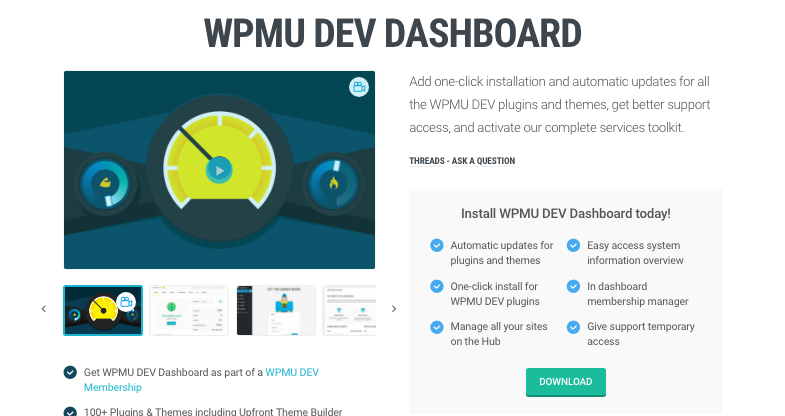
Note: If you do automate software updates, then you must also run security scans. If a plugin or theme update should result in problems, then the scan will alert you. Once you’re back at school in the fall, I’d recommend returning to manual updates, so that you can test your site each time you do an update.
This enhances your site’s performance and ensures that any security updates are installed immediately, helping to keep your site secure.
Which leads me on to…
Running Security Scans
While you’re away enjoying a well-deserved break, you won’t have the time (or the inclination, I imagine) to run security scans on your site. So this is something else you have to automate.
If your site runs on CampusPress you can relax, as this is taken care of for you – we’re constantly scanning the network for security vulnerabilities or breaches and will fix them as necessary. But if your site is on a standalone WordPress installation, then you’ll need to set up automated scans yourself.
Make sure that you use a tool that scans your site regularly and sends you an alert if it finds a problem. This alert shouldn’t be sent just to the admin email address for the site, as chances are this is your school email address which you won’t be checking while you’re sunning yourself on the beach. The ability to alert multiple staff and/or to send text alerts is a bonus.
For a self-hosted WordPress site, our Defender plugin will not only run security scans for you, it will also help you make your site more secure in the first place. It’ll identify any vulnerabilities and let you know exactly what you need to do to fix them. It’ll help you not only during the long vacation but in term time too.
Security scans will also check for downtime, so if your site goes down you’ll be alerted – meaning you can use your automated backup to restore it with one click (you did set up backups already, didn’t you?).
Managing Content During the Vacation
So, now you know your site’s infrastructure is ready for the long break, you need to consider content.
The question is: what content do you need to add during the summer, and who’s going to be reading it?
The answer is that your visitor numbers will fall drastically during the vacation, as you’ll know if you’ve been monitoring your site statistics. For the school sites I manage, I find that traffic always dips on weekends and holidays and that it plummets during the long summer break. However, as term time approaches again it starts to pick up, and there are certain pages that are always popular at this time of year.
It’s a good idea to get ready for this before you sign off for the summer, by preparing the content that people will need before the new school year starts. Content that people will be looking for includes:
- Information for new students and their parents – school uniform, induction and enrollment arrangements, information on staff for the youngest year group etc.
- The school calendar – there will be a mad rush to double check the start date at the beginning of the new school year, as when it approaches, parents and students suddenly lose their confidence that they remembered it correctly.
- Information on events taking place over the summer, including any summer schools, camps etc. Make sure this is up on the site before the beginning of the vacation and that it’s easy to find.
This is the routine I have for the school websites I manage:
Before Breaking up for Summer
Before the long vacation begins, there’s key information I update on the site. This includes:
- Staffing. On the day school closes, I edit the staffing pages so that they’re accurate for the new school year. This includes removing any staff who’ve left, adding new staff and updating staff’s positions or the classes they teach. This means making sure I have this information from the school office and faculty heads in advance.
- Summer events. I make sure any events taking place during the vacation are on the site with all enrolment, location and timing details, and there are links to this from the home page.
- The school calendar. I update the calendar with all dates for the summer break and beyond, including dates in the new school year.
- Year group information. I move all outstanding letters, notices, homework and other information up a year where relevant so that students can still access it from the page for their new year group. So for example, if year 6 are going on a residential trip in September and received a letter about it in July, it will have been stored on the Year 5 page of the site. I move it to Year 6. Anything that doesn’t need to be carried over will be archived at the beginning of the new school year and I won’t worry about moving that up.
If you’re running one or more active blogs on your site, you might also decide to add some posts for publication over the summer and schedule these in advance. I wouldn’t add many of these, as your readership is much lower at this time of year, but adding a small number will keep your site active and may help with your search engine rankings.
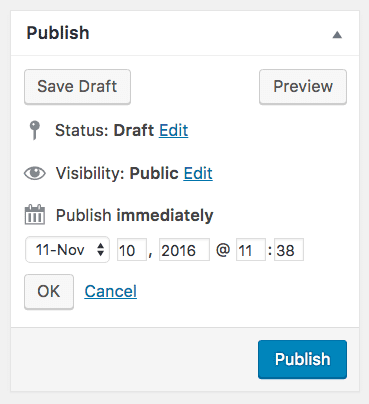
During the Summer
I try to keep the workload during the summer break to a minimum. As the new school year approaches (about two weeks before school returns), I update the front page of the site with a message reminding students and parents of key dates for the new school year. This will include:
- The date that school returns from vacation.
- Any different dates for specific year groups such as new starters.
- A welcome message.
- Links to enrolment and induction information.
That takes me five minutes to add. If you’re smart, you can schedule this in advance as a post on your site, which will be listed on your home page if that’s how your home page works. Meaning you don’t have to do any work at all over the summer. Bonus.
When School Returns
As soon as school returns, I archive last year’s content, including:
- Year Group information. I archive anything that doesn’t need to be carried over when students move up a year. This stays on the site but in an archive section.
- Letters, newsletters etc. I add all of these to an archive for the previous year, starting the new school year off with a blank slate. This includes image galleries, achievement announcements and more. You might decide not to archive everything – it depends on what you publish to your site.
This can sound like a huge pain but if your site is run on CampusPress it can be made easy. Ask us how you can use custom taxonomies for your year groups and school years, meaning that content can easily be moved from one to another in bulk.
Preparing For the Summer Will make Your Vacation Easier
If you take the time now to get your site ready for the summer break, then it will save you work and hassle when you’re supposed to be taking time off to relax. Make sure your site’s infrastructure is ready, with everything automated, and that you’ve published or scheduled any content people will need to access during the vacation.
If you’re not sure how to set all this up, then I can recommend switching your site to CampusPress. This will make managing your infrastructure easy and help you to schedule and manage content over the summer.
Enjoy the vacation!
